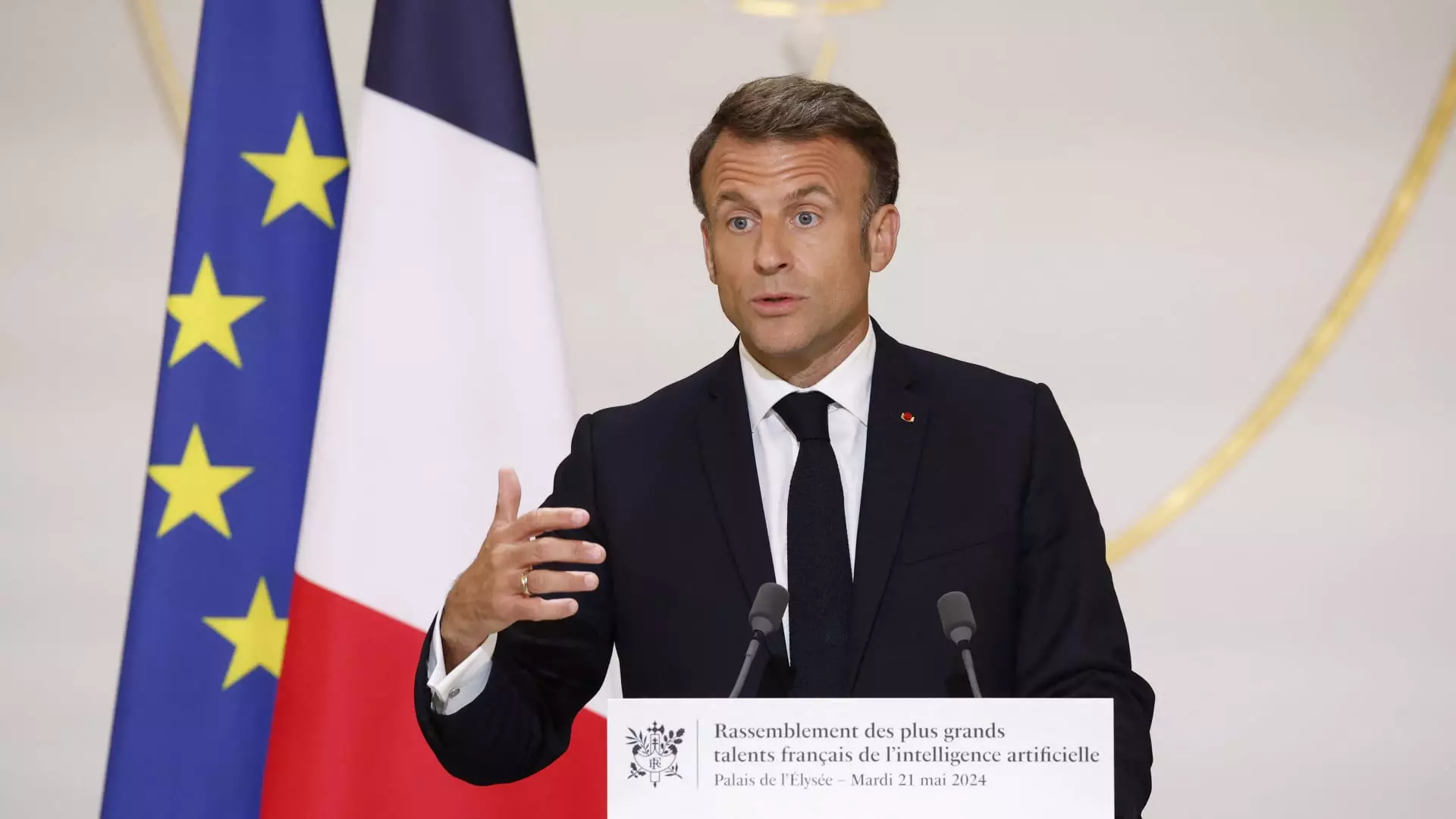French President Emmanuel Macron faced a heavy defeat in the EU elections, prompting him to make a surprising decision. Macron announced that he would dissolve the country’s parliament and call for a new legislative nationwide vote. This unexpected move came after exit polls indicated that Marine Le Pen’s far-right National Rally (RN) is set to win a significant portion of the vote, putting Macron’s Renaissance party in a difficult position.
The decision to call for a legislative election is a risky move for Macron. If Le Pen’s RN wins a parliamentary majority, Macron could potentially lose control over France’s domestic issues. Macron’s term as president isn’t scheduled to end until 2027, and he’s unable to stand for a third term, adding to the complexity of the situation. The uncertainty surrounding the outcome of the new election could also raise concerns for the markets, especially for a “fiscally challenged France.”
For Macron, calling for a new parliamentary election may be an attempt to revive the fortunes of his party. However, the odds are stacked against him, with predictions indicating heavy losses for his party. On the other hand, Le Pen’s RN, led in Europe by Jordan Bardella, has been making strides in appealing to a broader demographic. Despite dropping historic pledges to leave the EU and ditch the euro, Le Pen’s campaign promises to restore order, close radical mosques, and address the issue of migration have resonated with certain segments of the French population.
The recent EU elections have seen a surge in support for populist and far-right parties, with the far-right Identity and Democracy group making significant gains. While the center-right European People’s Party (EPP) is projected to win the most parliamentary seats, far-right parties have garnered record support. This shift in political landscape poses a challenge for mainstream parties, who now have to contend with the growing influence of far-right ideologies.
Despite Le Pen’s success in the EU elections and the potential gains in the upcoming parliamentary election, the road to the presidency is still uncertain. While it’s easy for Le Pen to criticize a second-term president like Macron, winning in a presidential election against a fresh contender will be a whole different ball game. The outcome will largely depend on whether French centrist parties can present a strong candidate to challenge Le Pen’s growing influence.
Macron’s decision to call for new parliamentary elections has thrown a curveball into French politics. The rise of far-right parties poses a significant challenge to mainstream parties, with the political landscape undergoing a profound transformation. The outcome of the upcoming elections will not only shape the future of France but also have far-reaching implications for the rest of Europe. As the dust settles on Macron’s defeat, all eyes will be on the unfolding drama of French politics.


Leave a Reply